Click here to return to Blog Post Intro
Jennifer

Jennifer has plenty of challenges ahead in 2022:
- Supporting her Mom, who lives 550 miles away
- Continuing to impact the lives of kids and fellow coaches as a Physical Education (P.E.) Aide at Weber Elementary
- Planning for Katy’s wedding—yikes!
- Supporting Cody, as he continues his College education
- Helping Tanner learn to drive and navigate High School trials
- Praying and being there for all of us!
For 2022, she chose the word “Patience,” recognizing she has a lot on her plate this year.

Katy & Evan

Katy and Evan are engaged to be married!
Katy finished her Undergraduate studies in Elementary Education at Dallas Baptist University (DBU), and is continuing to earn her Master’s degree while working part-time in the College of Education.
Katy’s One Word for the coming year is “Grounded.” As she put it, she wants to “remind herself amidst all the transition and everything happening to stay focused on her faith & purpose and remain grounded in God’s character.”

Evan joined our family’s One Word tradition last year with the word “Wisdom” because he recognized that 2021 would be his last full year not being married and wanted to soak up as much as possible.
For 2022, Evan is choosing “Stewardship“–noting a working in progress of both gaining and applying Wisdom. He recently read Garden City, where pastor and speaker John Mark Comer gives a counter-cultural take on the typical “spiritual” answer of the church. Comer explores Scripture to discover God’s original intent for how we are meant to spend our time, reshaping how you view and do your work, rest, and life. Through the book, Evan was encouraged to seek to use the resources provided by God to build the world around us.
Evan will be looking for a job in 2022, so he will be asking if his work is helping to build a better world and if he is stewarding God’s creation well.

Cody

Cody finished the Fall 2021 semester at the University of Houston, but has decided to transfer to Blinn College’s RELLIS Campus (named for Texas A&M’s Core Values of Respect, Excellence, Leadership, Loyalty, Integrity, and Selfless Service) in Bryan, Texas to be closer to his high school church friends.
For the year ahead, he’s chosen the word “Growth.” He learned a lot from his experiences at college and living on his own in 2021 and recognizes that he needs to continue to mature toward independence.
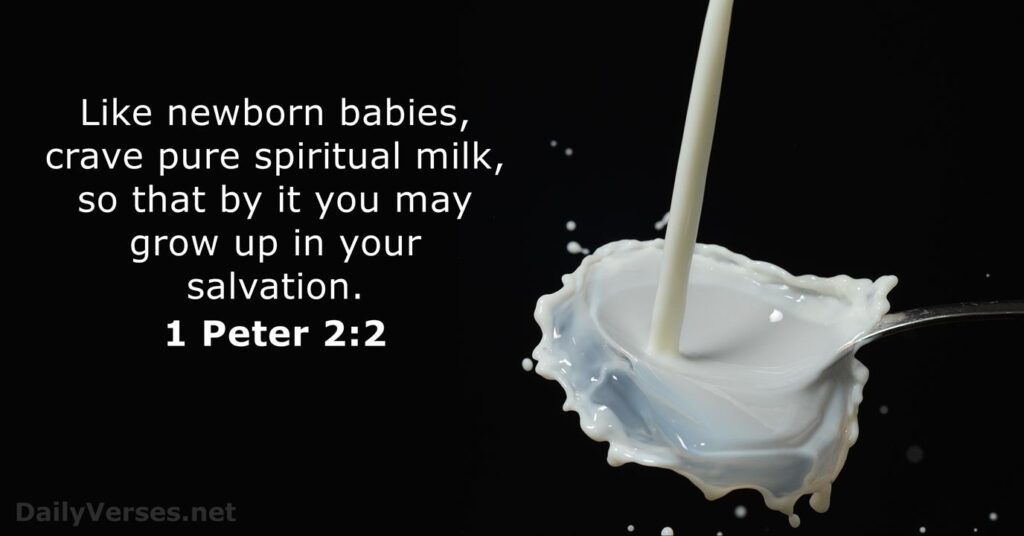
Tanner

Tanner is off to a great start at Clear Lake High School, enjoying basketball, Young Life, and making connections with friends.
He has chosen the word “Dedicate” for 2022. He wants to increase his commitment to Christ, and show dedication in his academics and athletics. I love that he’s using an action verb!

As we start this new year, let’s consider it a new beginning. What’s your One Word to bring more intention to the new year, as you shoot for the stars?
Mine is “Faith”!
What is Faith?
For my 2022 study on Faith, I’ll be using the following six studies:
Unlikely Heroes: Ordinary People with Extraordinary Faith by Daniel Lockwood

In our spiritual pilgrimage, sometimes it is wise to return to the basics and reflect on the fundamental meaning and implications of living a life of faith before God.
Let’s consider the common myths about faith:
- The Myth of Mystical Faith: This is faith without reason or the “blind leap” approach. An agnostic argues that faith is by definition that which you cannot prove. That kind of faith “means sacrificing your mind.” Others embrace mystical faith in New-Age religions. People who embrace mystical faith are all around us. Likely, in the years to come, more and more will become “people of faith” but will care little about whether the object of their faith is credible or reasonable.
- The Myth of Emotional Faith: Faith depends on how it makes you feel—a “feel good” faith. In our pluralistic society, religion is a good thing, and any religion you choose is fine. You have the right to believe what you want. But religion is personal, so don’t impose your beliefs on me. This misses the fact that Christianity is a religion: pure and true (John 14:6).
- The Myth of Intellectual Faith: In this misunderstanding, faith is the affirmation of a collection of propositional truths—or “grocery list” view of faith. It is possible to know the right words yet possess no relationship with God at all. James reminds us of the inadequacy of trusting doctrine when he notes, “You believe God is one, and you do well. Even the demons believe—and shudder” (2:19).
In his book Basic Theology, Charles Ryrie examines three pivotal biblical phrases that capture Scripture’s bigger landscape of faith:
- “Believe that”: This is a favorite of the apostle John. In 1 John 5:1, he writes, “Everyone who believes that Jesus is the Christ has been born of God.”
- “Believe in”: Jon uses this in the familiar verse, “For God so loved the world, that He gave his only Son, that whoever believes in Him should not perish but have eternal life” (John 3:16). Whereas “believes that” emphasizes truth, “believe in” highlights trust.
- “Believe on”: This was a favorite expression of the apostle Paul, who wrote, “Whoever believes on Him will not be put to shame” (Romans 10:11). Whereas the other components pertain to truth and trust, this one pertains to troth—an archaic word formerly used in traditional marriage vows, meaning commitment.
Here’s Lockwood’s definition of faith: Faith is the present confidence that God will fulfill His promises in the future because He has proven faithful in the past.
Joy of Living Bible Studies – Hall of Faith: Study on Hebrews 11 by Ruth M. Bathauer
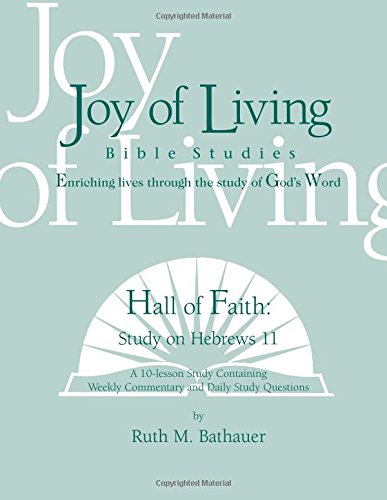
Faith is absolutely essential to the development of the Christian life.

As Saint Augustine, one of the early church fathers, put it, “Faith is to believe the word of God for what we do not see, and its reward is to see and enjoy what we believe.”
Hebrews was written to Jewish Christians who were wavering a bit in their faith. They had lost their first enthusiasm and were not growing. There was real danger that they would “drift away” because of unbelief. The author of Hebrews connected with the Jewish Christians through Old Testament examples of faithful living.
Living by faith does not mean being exempt from trouble. Sometimes we forget the words of Jesus, “In this world you will have trouble. But take heart! I have overcome the world” (John 16:33).
In her book What the Bible is All About, the late Dr. Henrietta Mears, founder of Gospel Light Publications wrote, “The secret of Christian living is simply allowing Christ to meet your needs… Faith is just trusting God, believing Him. There is nothing mysterious about faith. It is simply an act of will. Either we will believe God or we won’t. We decide.”
A Great Cloud of Witnesses: A Study of Those Who Lived by Faith by Trillia Newbell
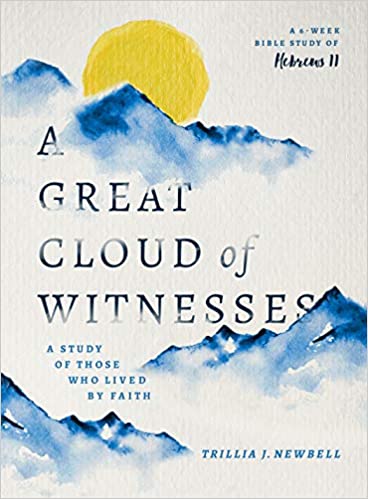
Hebrews 11 features the “great cloud of witnesses” (Hebrews 12:1), who offer us stories that serve as motivation to run the race set before us. Those Old Testament saints died being sure of the things that were promised and entrusted themselves to the omniscient, omnipotent, eternal, faithful, and trustworthy God. God, in His goodness, honored their faith.
Theologian F.F. Bruce sums up the faith of Old Testament saints this way, “Their faith consisted simply in taking God at His word and directing their lives accordingly; things yet future as far as their experience went were thus present to faith, and things outwardly unseen were visible to the inward eye.”
Faith isn’t something that’s abstract or fluffy. Faith is a grounded assurance and conviction in the Lord and His Word, and it rests in all of His promises for today, tomorrow, and forevermore.
Faith for Life: Inspiration from the Ordinary Heroes of Hebrews 11 by Richard Coekin
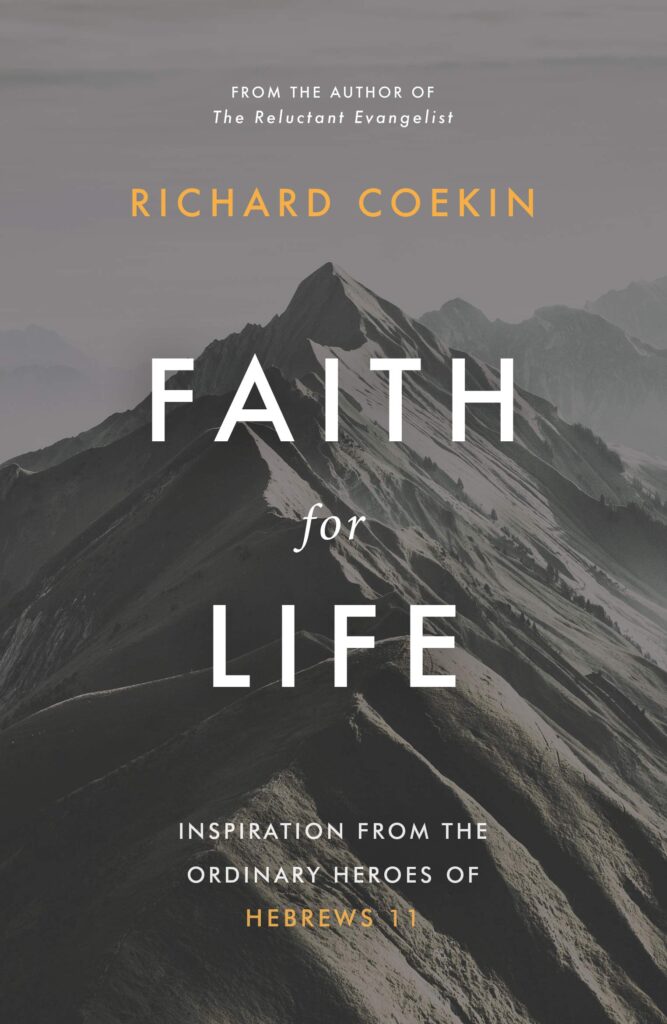
Christians should not be hiding their faith. We should not become spiritual chameleons: desperately trying to fit into the culture of this world to remain camouflaged and safe from predators who might expose and condemn our faith. But many of us are under immense pressure to do just that.
The letter to the Hebrews was written for discouraged Jewish Christians, probably living in Rome, afflicted with the chameleon syndrome. They were tempted to hide their faith. Hebrews 11 celebrates the faith of our Christian ancestors—our spiritual family. The author calls them “such a great cloud of witnesses” (Hebrews 12:1). He’s not suggesting they’re watching us from heaven. He’s saying they encourage us from the pages of Scripture.
These “heroes of faith” are not a select group of heroes at all. The point is that God has always empowered preserving faith in His people. The author is demonstrating what God can enable all His readers to do by faith.
Heroes of Faith by Douglas Connelly
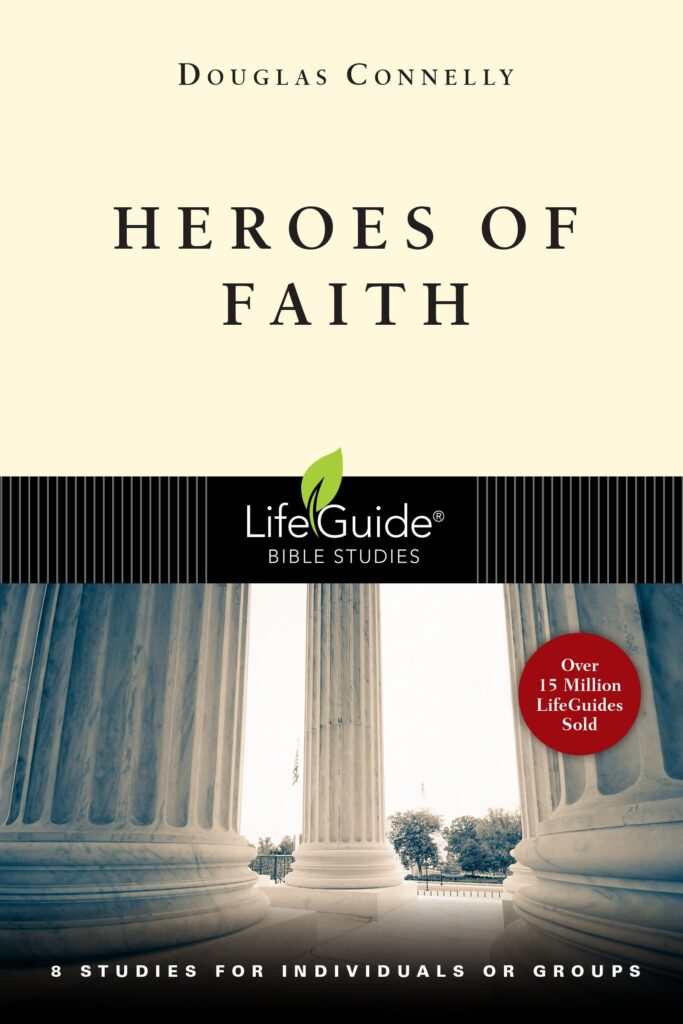
We all need heroes—people who have set an example for our lives or who have pioneered the way in our careers or who have guided us through difficult times.
The writer of Hebrews set up an entire gallery of spiritual portraits for us to remember and pattern our lives after. These are individuals who learned in tough times to stretch themselves out in faith on an almighty God and His unfailing promises.
God’s Hall of Faith Speaks Today (Hebrews 11) by J. David Eshleman

According to the National Institute of Mental Health, 24 million (or nearly 20%) of US adults had an anxiety disorder in 2018. Church attendance has declined sharply since 2000, especially among youth and young adults. According to ChurchLeadership.org, every year more than 4000 churches close their doors compared to just over 1000 new church starts!
This is not the first time God is faced with a moral decline by the people he created. God includes Hebrews 11 in the Bible for us to observe how these men and women of faith lived in such a time as ours.
Most every sport has a Hall of Fame—a place to honor the men and women of a particular sport. Hebrews 11 is often referred to as “God’s Hall of Faith.” Interestingly, many of these Old Testament characters were not always models of obedience as they strived to exercise their faith and trust in God. These men and women were real, transparent, and authentic. Their humanness helps us in understanding our battles in our walk of faith as we identify with them in our pilgrimage.

Faith is a verb. Knowing about God without obeying God is not faith.
As we look at the men and women of faith from Hebrews 11, may our own faith grow throughout the year in 2022!
